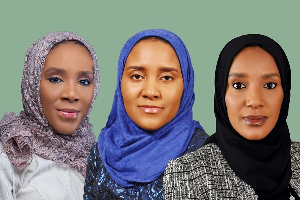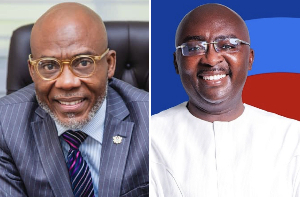Accra, July 26, GNA - The Volta Regional Caucus in Parliament on Wednesday called for a State funded university to be established in the Region.
They contended that such an enterprise would promote equity and genuine access to university education in the Region and the rest of the regions of Ghana.
Mr Joseph Amenowode, NDC-Hohoe South, in a statement on the floor of the house, on behalf of the Volta Caucus, said: "Mr Speaker, we want to state that the establishment of a University for the Volta Region is both a right and a necessity.
"The Volta Region deserves a State funded University just like all the other regions. The establishment of Polytechnics in all the 10 regions of Ghana had shown the way in satisfying the right to equal educational opportunities and a similar policy in relation to university education should be implemented immediately." Mr Amenowode said the absence of a State funded university or campus of any of the universities in the Eastern and Volta Regions, out of the 10 regions of Ghana, was a serious omission, which should be addressed immediately to ensure equity in the development of education in Ghana.
Citing Article 17 and Article 25 of the 1992 Constitution, Mr Amenowode said equity demanded that all regions must have access to equal opportunities and facilities, which he said included the establishment of State universities and other facilities. He said the Region could boast of 2,335 Basic Schools, 70 Senior Secondary Schools, seven Teacher Training Colleges, three Technical Institutes and one Polytechnic, arguing that a progression was needed from the number of educational institutions in the Region. "It is clear that getting students for any size of university would not be a problem. It is a fact that non-availability of a university in the Region denies many prospective students from the Region from accessing university education.
=93With the escalating school fees and accommodation problems, in the universities, distance becomes an impediment to some poor but brilliant students from the Region," Mr Amenowode said. He indicated that a university in the Volta Regions would bring academic development into the area as well as improve the socio-economic parameters and other academic facilities as libraries, resource persons and staff to enhance the social well being of the community. Contributing to the statement, Mr Dan Abodakpi, NDC- Keta, said the demand for a university in the Volta Region, was in response to the reform of tertiary education to meet the needs of national development. He said "any argument that when we (the present opposition National Democratic Congress) were in power, we should have provided such a facility is neither here nor there as development of tertiary educational facilities tended to be in phases throughout the country, and it was now rather time to make a request to that effect".
Captain Nkrabea Effah-Dartey (rtd), NPP-Berekum, making further contributions, said, a full university or a campus for the Agricultural Colleges of the country's universities, the University Development Studies, or University for the study of Tourism, should be established in the Brong Ahafo Region, the Region which housed his constituency. Mr Alexander Tettey-Enyo, NDC- Ada, said the statement pointed to the need to expand tertiary education in the country. He observed that as the re-opening of the universities and the polytechnics were just a few weeks away, a large number of students with less than aggregate 24 would not be able to access university education because of limited space.
He welcomed private participation in the provision of tertiary education as well as measures to increase access to Distance Learning Education.
Papa Owusu Ankomah, Minister of Education Youth and Sports, gave an assurance that Government was prepared to provide the infrastructure for distance learning, and to ensure a balance academic and technical education at the tertiary levels for national development. 26 July 06
Regional News of Wednesday, 26 July 2006
Source: GNA












